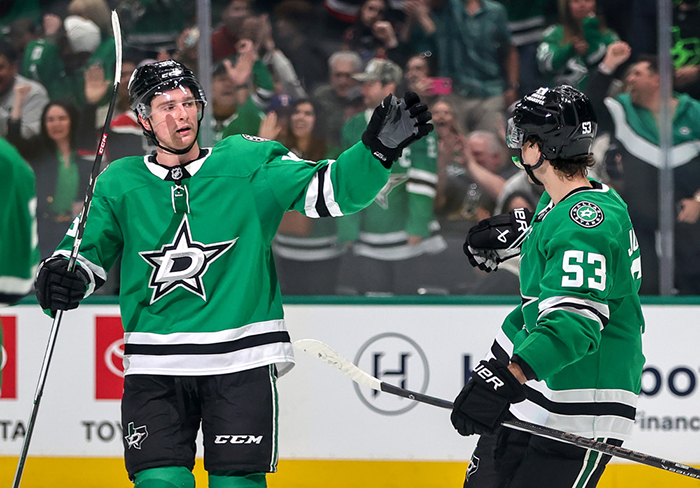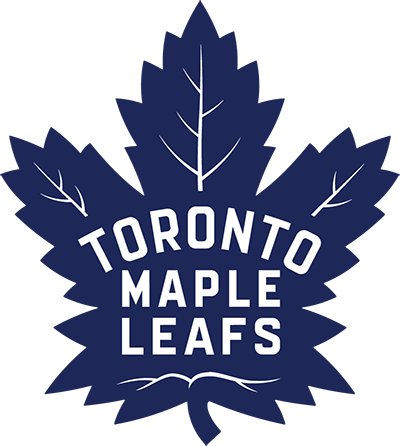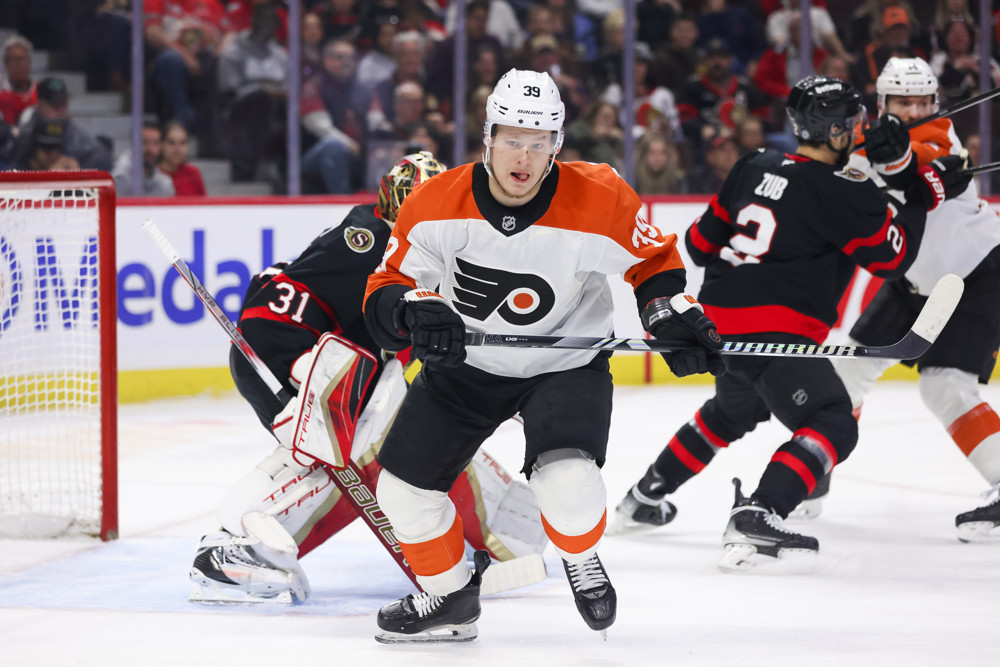For the first time since 2018, the Washington Capitals advanced into the second round of the Stanley Cup Playoffs. Next, they will take on a team they have only seen once in the postseason before in their 50-year history, the Carolina Hurricanes.
After Washington dispatched of the Montreal Canadiens in five games, the road becomes rougher when they turn their attention to Carolina, a team that presents opponents problems with their skating ability and speed, and at times, relentless pressure on net.
In four games this season, the Capitals and Hurricanes took two wins apiece, with Carolina outscoring Washington 14-11 and their last meeting of the regular season being a shootout win for the Caps – although the two April meetings had little impact on the standings and only served as an appetizer for what could be a feisty series. Starting in the third period of the April 2 matchup in Raleigh, both teams seemed to want to send messages for a potential second-round matchup that had seemed predestined for months.
In their first-round series against Montreal, the Capitals showed large stretches of controlling play against the Canadiens, with the Caps being most effective when applying pressure and keeping their opponents on their heels, and they largely had the upper hand in the series against a team with limited playoff experience. Now, Washington has just five skaters from the 2019 series who dressed in Game 7 – John Carlson, Nic Dowd, Lars Eller, Alex Ovechkin, and Tom Wilson – and the first-ever playoff meeting with the Whalers/Hurricanes franchise ended in double-overtime defeat that ended the Capitals’ back-to-back hopes. Now, seven years later, they face a Carolina team that has reached at least the second round that season and every since – but also has yet to make a visit to the Stanley Cup Final in that stretch.
For their part, Carolina controlled their series against a depleted New Jersey Devils squad, only really having some turbulence when goaltender Frederik Andersen left Game 4 of the series with an injury, and Pytor Kochetkov took over in net. While the Hurricanes won both games and advanced where Kochetkov appeared, the prospect of Carolina’s first Stanley Cup since 2006 seems much more remote if Andersen isn’t healthy.
If Washington wants to look to reach the Eastern Conference Final against either the Florida Panthers or Toronto Maple Leafs, they will need to do these three things against a team that poses a very tough matchup for the Capitals:
1. Pressure The Carolina Net
With the Hurricanes having a full week off before Game 1 of this series, it seems more likely that Andersen will return to the crease for Game 1, as he skated with the club over the weekend. Andersen was very solid in his four appearances against New Jersey, going 3-0 with a .938 save percentage, but also against a Devils team that was limited offensively due to a wave of injuries, and generated just 94 shots in 3-plus games against him – with 37 faced in Andersen’s lone setback in the series. Andersen, who was limited to 22 games this season due to injury, is a key for Carolina’s run, and the club rewarded him with a one-year contract extension following the New Jersey series.
Washington saw Andersen in the teams’ last two meetings of the regular season, a 5-1 Carolina win in Raleigh on April 2, and a 5-4 Washington shootout win at Capital One Arena eight days later. While those games are a bit of an outlier since the Capitals had already secured a playoff berth by that point and the Hurricanes were getting locked into the second in the Metropolitan Division, it does show that when Washington doesn’t pressure Carolina, they don’t generate success.
Washington showed its team’s strengths and weaknesses in its series against Montreal. When the Capitals pressure and attack their opponent, they are very effective and control the pace of play. However, when they elect to be more passive and sit back, especially with the lead late, they ceded space and allowed Montreal to fire at will against both Logan Thompson and Charlie Lindgren.
Like Montreal, Carolina is another team that thrives on space, firing at will at opposing netminders and looking to push the pace themselves, so a passive Washington team isn’t going to perform well. While it certainly isn’t easy for the Capitals to put a team like the Hurricanes on their heels, they are certainly capable of at least matching the pace should they decide to pressure Carolina.
While Washington probably may angle for a bit more of a defensive tack against Carolina and try and slow down the Hurricanes, they also have to make sure they generate enough chances against what is likely the Hurricanes’ weakest point, the goaltending. The Capitals’ season high in shots against the Hurricanes this season was 28, and it likely would be difficult to advance to the second round should they not create offense.
Washington also saw Kochetkov twice this season, with the Russian posting a 1-1-0 mark along with an .884 save percentage, and should Andersen not be able to play, Carolina’s Cup hopes are much murkier.
2. Thompson Answering The Bell
Like Carolina, Washington got a goaltending scare of their own in the first round, when Thompson was injured by Dylan Strome in the third period of Washington’s lone defeat in the series against Montreal. However, he returned for his next start and was very solid when he needed to be against the Canadiens, and did not show some of the issues that popped up his game down the stretch in the regular season.
During the series, the Capitals largely ceded play to Montreal in the later stages of each game, but Thompson was solid and finished 4-1 with a .923 save percentage, with the Canadiens’ most effective chances mostly limited to the power play or when Washington yielded more in-tight chances in the zone when sitting back.
While Thompson and Lindgren split time down the regular season, Thompson emerged from the pack as the team’s top netminder for the postseason with a 31-6-6 mark and a .910 save percentage, and likely narrowly missed a Vezina nomination thanks to an injury down the stretch. Thompson is largely an unknown to Carolina, as he only faced the Hurricanes in just 20 minutes of action this season, allowing 3 goals on 9 shots in the first period of the April 2 defeat in Raleigh, a game marked with a relative absence of effort for Washington – and Carolina looking to officially clinch a playoff berth. Thompson’s only other appearance against the Hurricanes came on December 19, 2023, when he was a member of the Vegas Golden Knights and allowed 6 goals on 29 shots in a loss.
With Carolina’s talented and speedy attack, Thompson will have to be sharp in net, because the Hurricanes will throw pucks at the net relentlessly, and just on sheer volume, a goaltender is required to be sharp against the ‘Canes. In four games against Washington this season averaged nearly 34 shots a game and netted 14 goals, so there is little rest for a netminder against the Hurricanes lineup.
However, one of the reasons for Washington’s renaissance this year is the goaltenders’ ability to deliver big saves and frustrate opponents, and this series will be no different if Washington is to advance. Carolina was the third-most potent team in the Metro this season behind only Washington and Columbus and 10th overall with 266 goals, despite what largely had been a year of transition in Raleigh, with the trade for Mikko Rantanen from Colorado in January and his subsequent trade to Dallas in March which left the team looking much different than the first two meetings of the season.
Washington’s edge over Carolina coming into the series is the strength of the goaltending tandem, and it will have to hold up in order for the Caps to advance, and Thompson will need to outperform Andersen for them to move on.
3. Winning In Raleigh
While the home of the Carolina Hurricanes has a new name in the Lenovo Center, it still hasn’t been a welcome spot for the Capitals in recent seasons. Washington’s last non-shootout-aided win in the Tar Heel State came back on November 28, 2021, a 4-2 decision that was marked by a game-winning power-play goal by Dmitry Orlov, then a member of the Capitals. After that, Washington has gone 2-3-1 in Raleigh since, with both wins coming in shootouts – including one loss in the 2023 Stadium Series across the street from the regular home of the Hurricanes, and also dropped all three games in North Carolina in their 2019 playoff series. Both games this year in Raleigh were Carolina regulation wins, with the home team with a 9-3 edge in goals.
The crowds for games in Raleigh really ramp up for the postseason when the college basketball season ends, with plenty of tailgating taking place outside in the parking lots, with the nicer weather arriving in the Southeast, and the building keeps a high tempo like the club on the ice. And with the team’s recent run of playoff appearances lasting at least into the second round, the expectations are high that the team can finally break through for a much deeper run this spring.
Home ice has been even more important for the Hurricanes this season, as 63 of Carolina’s 99 points came on home ice, as the Hurricanes finished with the third-best home record in the regular-season with 31-9-1, but a pedestrian 16-21-4 away from home and the 10th-worst in the NHL, making those three games on home ice keys for Carolina. None of the nine teams who finished behind the Hurricanes in points earned on the road even qualified for the playoffs, and Carolina is the only team in the bottom 14 to make it in, let alone advance to the NHL’s final eight, so the Hurricanes have needed to maximize their home success, and that won’t change in the postseason.
Clearly, with Washington having home-ice advantage, it isn’t absolutely essential for Washington to win a game at Lenovo Center, but if they don’t, their margin for error at home drops to zero. The 2019 series saw both home teams win the first six games but in Game 7, when the Capitals’ long playoff run the season before seemed to take its toll as the team’s title defense came to an end and the Hurricanes made Washington pay in double overtime for the lone home setback in the series.
This postseason, the Hurricanes went 3-0 at home against the Devils, and even after a sluggish start to Game 5 in falling behind 3-0 in the first period, players credited the raucous atmosphere for helping them rally back and eliminate New Jersey. While Washington experienced one of the NHL’s toughest barns to win in at Bell Centre in the first round, they will get another building that will be tough to earn wins in Carolina.
Should the Capitals advance, it seems almost required for them to earn at least one win on the road, particularly for a team that tied for the best road record in the league at 25-13-3. And for them to exact a measure of revenge for 2019, and also reach the Eastern Conference Final for the first time since 2018, a team that has proven its mettle on the road will have to earn one in one of the toughest spots in the NHL this past season.
Carolina is one of three teams in the Eastern Conference that Washington has never beaten in the playoffs, along with Detroit and Florida, and will need to put pressure on the Hurricanes, get solid goaltending, and look for road success to give themselves a shot at just their fourth conference final appearance in their 50 seasons.



